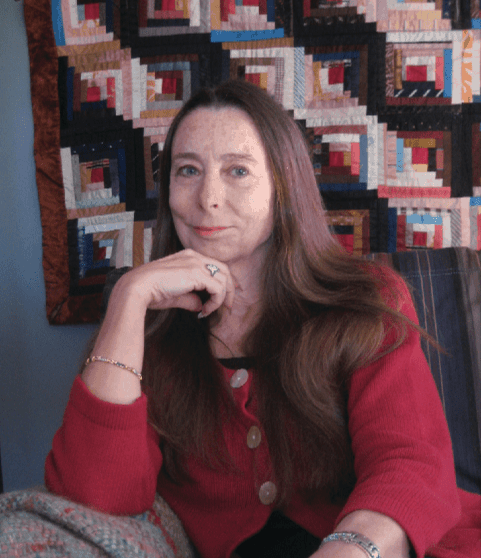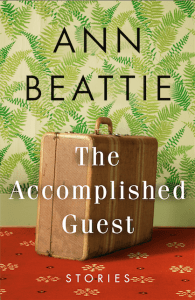Q & A with Ann Beattie
BY ALEC HARVEY
Ann Beattie is one of the brightest lights of American short fiction.
Her work has been included in numerous award-winning collections, as well as John Updike’s “The Best American Short Stories of the Century” and “The Best American Short Stories of 2014.” She has taught at the University of Virginia and is the recipient of the PEN/Malamud Award and Rea Award.
 At the Oxford Conference for the Book, she’ll talk about her newest collection, “Peter Taylor: The Complete Stories,” which she edited for the Library of America.
At the Oxford Conference for the Book, she’ll talk about her newest collection, “Peter Taylor: The Complete Stories,” which she edited for the Library of America.
Beattie answered questions about her work and Taylor’s from her home in Key West, where she lives with her husband, artist Lincoln Perry.
Your own work has run the gamut from short stories to novels to even children’s books. Can you speak to the short story form and why you seem to like it so much?
It seems to like me. Or, at least, novels don’t much like me. In other words, for whatever reason, I feel more comfortable working with shorter fiction. Maybe, since it seems to me there are always subtle mysteries underlying stories of any length – a lot of them intentional, others not – the short story seems able to come closer to articulating those mysteries fleetingly, subtly, whereas a longer work often depends more on revelation and repetition. (I’m excluding the mystery genre.)
Have you seen your writing evolve over the decades?
I don’t think every art form has to “evolve.” Yes, often a painter or a writer does proceed toward something, but most of us would be miserable if we thought we’d arrived. So I hope I haven’t.
You’re a prolific writer. What do you do when you get writer’s block, or do you?
I go to the gym, drink white wine, agree to travel (my husband would go to almost any country, almost any day), get the flu (or manage to get sick in some other way; that’s a surefire way to get me back at the desk), make elaborate dinners (preferably based on Joe Famularo’s cookbooks, or improvising on the madly inventive recipes of James Haller), go visit friends, spend too much time on email and read at least two books at the same time, which otherwise drives me mad. I don’t necessarily do these things in that order.
You’ve also taught. Can you teach someone to write?
I quit my day job four or five years ago. You can teach some people some things about their own writing, proclivities that perhaps they don’t already know. It’s always interesting, what someone takes away from a conversation. On both sides. That’s not always known in the moment.
Why have many never heard of Peter Taylor?
I do address this very good question in my introduction to the LOA volumes. I don’t really know the answer, though. I think perhaps because the poets of his generation eclipsed him in reputation, partly (Lowell, Bishop, etc.) Also, he wasn’t self-promoting. He did not have a long, happy relationship with one particular literary agent. Because he’s a very complex writer and – as usually happens with truly complex writers – their writing is inevitably misunderstood, then simplified and paraphrased, and the work really suffers (and is misrepresented) because of that.
At a recent book conference in Nashville, when asked this question, something suddenly came to me, and I asked for a show of hands (at least 100 people were in the audience) of people who’d heard of David Markson. No one. This is not David Markson’s fault, and if people haven’t heard of him, his books are in print. As are Peter’s complete stories now (whew), and he has many other amazing books that are easily available.
Was Taylor a mentor?
He and John Casey were responsible for hiring me at the University of Virginia when I was 25 and had no books in print. I’d say they really took a chance. No, he wasn’t a mentor, but he was an inspiration. I wish I had been a better reader of literature in those days, and – of course – that I’d been less shy and had asked questions. How really fortunate I was to have him on my side. It never crossed my mind then that there was a great difference in our ages. Now, I realize how generous he was. And he and his wife became my good friends.
Tell me about the collection of his stories. Was it your idea to publish them? Did that come up elsewhere?
Many very distinguished writers have wanted LOA to get Taylor back in print for a long time. For example, his work has been much admired by Anne Tyler and Joyce Carol Oates and Richard Ford and Richard Bausch, among many other writers. I understand these things take time. Robert Wilson, a writer, himself, and editor of “The American Scholar,” gets the most applause, though, as he lobbied long and hard for LOA to start publishing Peter Taylor – and his wish prevailed. The person I worked with on this project, Christopher Carduff, was brilliant. (And I don’t throw that word around.) He did the chronology, and he did it so carefully and so insightfully. He’s now the book editor of “The Wall St. Journal.”
How would you suggest people start reading Taylor’s work? Anything in particular they should start with?
There are plays and novels too, of course … but with the stories, I’d say just start in and see what he seems to be up to: what his “world” is — what his interests were, how he constructed a story, and begin to notice the way the stories, themselves, eventually tell you how to read them in greater depth. If you hear, for example, an echo of Henry James … why? What was Taylor up to? Literature is in dialogue with other literature – that’s what literary allusions are, as well as other gestures writers make to acknowledge works they admire. Here’s one thing that I find amazing about Peter Taylor: the stories do open up, but, at the same time, they trap you.
What’s next for you?
I have a new novel coming out in 2019. If that seems a slightly evasive answer, I admit that I don’t like to feel like there are any expectations. That cuts into the fun of writing.
The Oxford Conference for the Book takes place March 21-23 at the University of Mississippi and other locations. Most events are free. For more information, go to oxfordconferenceforthebook.com.








